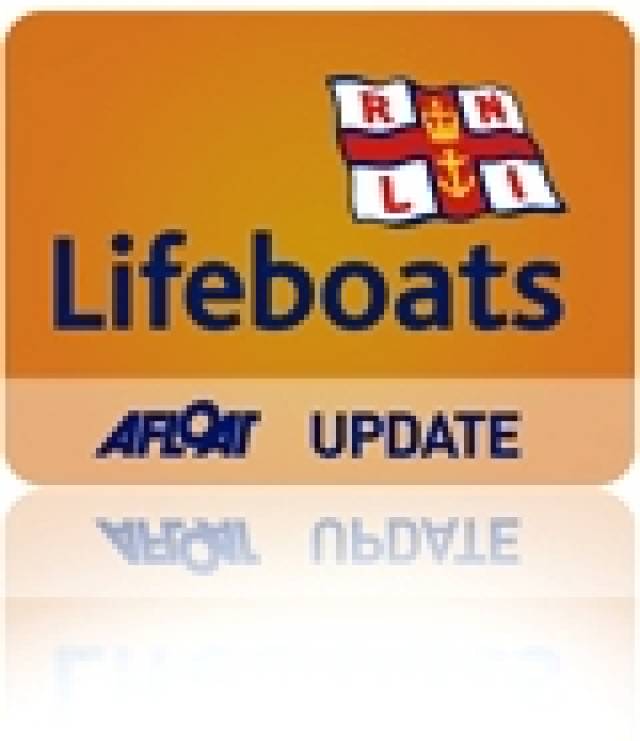#RNLI - RNLI Magazine revisits the fateful day last summer off Co Louth when a fishing trawler went under in a matter of minutes.
Despite the clear day and calm seas, as previously reported on Afloat.ie, the razor clam boat with two fishermen on board sank without warning off Port Oriel on Clogherhead after 5pm on 23 August last.
But in a fortunate turn of events, the sinking vessel was seen from a nearby fishing boat skippered by Sean Flanagan – who also happens to be one of the local RNLI's highly trained volunteer crew.
Flanagan got on the phone to deputy coxswain Tomas Whelahan to spark the lifeboat launch before calling in a Mayday and going to the aid of the sinking boat along with his son Donal.
From the deck of their Naomh Óisín, they could spot smoke rising from the engine of the stricken vessel, and getting closer they could see it was listing badly.
So there was no time to lose: once Sean had radioed details to the Dublin Coast Guard, he and Donal hauled their gear and made haste to the sinking boat and its two-man crew now vulnerable in the water.
RNLI Magazine has much more on the story HERE.
































































